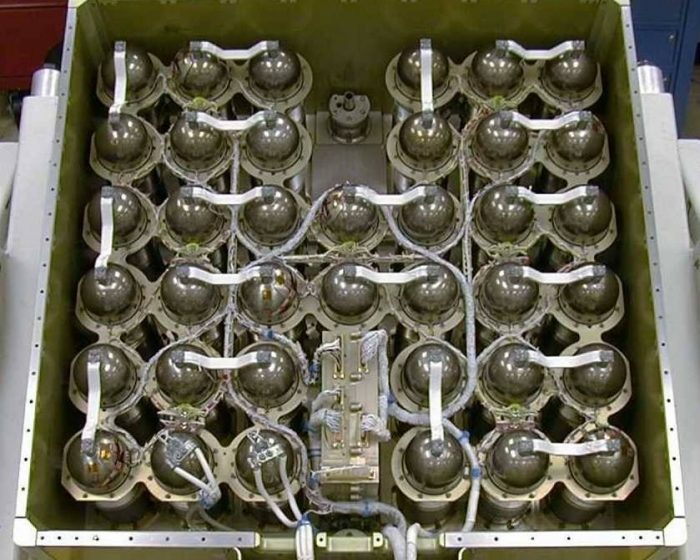From pv magazine USA
In what has become the summer of battery storage, a new chemistry has entered the fray, with battery startup EnerVenue launching this week with $12 million in seed funding.
The company is betting on the success of metal hydrogen batteries, specifically nickel-hydrogen batteries. This chemistry has proven to be an incredibly powerful energy storage technology for the aerospace industry for quite some time, but was always held back from greater commercial success due to its high price.
According to Dr. Yi Cui, chief technology advisor for EnerVenue, the company has been able to achieve commercialization via “a breakthrough competitive price using new low-cost materials.” It was able to do this by working with EEnotech, a startup that incubates and accelerates nanotechnology-driven solutions to, among other things, grid-scale energy storage.
That’s the key with the company: entering the storage market specifically with metal-hydrogen batteries developed for large-scale renewable and storage applications.
Unlike lithium-ion, the company claims that metal-hydrogen batteries excel in conditions of extreme heat and extreme cold. Because of this, the battery comes with no risk of fire or thermal runaway and also includes no toxic materials. This makes it recyclable, which is a huge tip in its favor, as the recycling of materials is only going to grow in importance as the renewable energy industry evolves.
EnerVenue claims that the company’s batteries have a more than 30-year lifespan, can go through more than 30,000 cycles without experiencing degradation. They offer exceptional overcharge, overdischarge, and deep-cycle capabilities. The company also claims costs per kilowatt-hour are as low as a penny, as well as capital expenditure costs that beat lithium-ion.
EnerVenue is looking to develop large renewables-plus-storage applications, for utilities and big commercial applications. To prove the ability of its batteries to excel in all climates, the company is specifically focused on hot desert environments, and wind farms and microgrids in difficult-to-reach locations.
This content is protected by copyright and may not be reused. If you want to cooperate with us and would like to reuse some of our content, please contact: editors@pv-magazine.com.




“Could”, “will”, “shall”, “maybe”, “will be”.
That is the story of the commercial energy storage industry.
I have been waiting for 5 years for a battery system that will store solar energy for my small factory in a remote third-world location at 50kva but will not bankrupt me. What I hear every week are technologies that “could” or “should” or “game-changer” but none of them has any product that is ready for the market.